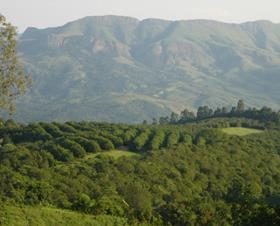
The violent strikes that have caused huge damage across some of South Africa's Cape fruit-growing regions during the past few weeks have been suspended.
Fruit growers are now assessing the situation, with at least one leading farming group declaring that it is reviewing its investment policies in South Africa.
While efforts are being made to negotiate a lasting solution, fruit growers have claimed that the situation is out of control with what they call 'groups of saboteurs' targeting and intimidating them on their farms, as well as employees that want to return to work, with threats of violence.
Dutoit Agri, one of South Africa’s major agricultural groups, suffered major damage on one of their farms in the Witzenberg Valley near Ceres. Growers on other farms in the Ceres, Wolseley, Hex Valley, Robertson and Bonnievale areas have also reported major damage.
This has lead to Dutoit Agri issuing a statement in which they noted that they would not consider any further investment in South Africa unless certain conditions were met.
'This disruptive experience compels us to set a condition that trading policies are clearly stipulated, before any further investment in the agricultural sector in South Africa takes place,' says Pieter du Toit, managing director for marketing and Gys du Toit, managing director of production at Dutoit Agri.
Dutoit Agri is one of the biggest fresh produce groups in South African with production in the Western and Eastern Cape, producing and marketing more than 15m cartons of fruit and vegetables every year on more than 4,000ha and employing close to 9,000 people.
'The situation in the Western Cape is extremely serious,' says Pieter du Toit, 'and the government does not want to intervene.
'During the past three days it was impossible to carry on with our business as usual. Dutoit Agri suffered millions of rands of damage to property and vast consequential losses due to critical agricultural practices being disrupted.'
The group’s management and well-intended workers were assaulted, traumatised and fear for their lives, du Toit continues. 'While this is happening the government is not doing enough to protect our assets and people.'
Du Toit warns that the situation is causing a major break in confidence (for the future), and may result in the loss of thousands of work opportunities.
'At Dutoit Agri we are proud of the long-term record of creating sustainable work opportunities and good working relationships,' he adds. 'This political campaign left us little room for constructive engagement and negotiations with our employees. The anarchy during the past three days forces us to reconsider our long-term strategy.'
He notes that Dutoit Agri will do everything within its power to carry on with critical tasks in order to minimise the impact.
Elsewhere in the Western Cape, the grape growers of the Hex River Valley – where the strikes first started – have reported on a slow return to normality.
'For the first time in two weeks we are again able to focus on the vineyards, but we are all shaken by the experiences of the past fortnight,' says one grower.
The violence in the fruit and other sectors in the Western Cape have caused widespread disruption, with both the two major highways connecting Cape Town with Johannesburg and Port Elizabeth being closed for considerable periods.
Violence in the Southern Cape of Swellendam, the result of conflict between the majority political party in the Western Cape, the Democratic Alliance, and the ANC, caused the closure of the N-2 highway.
Behind the scenes, there are now efforts to review working conditions in the fresh produce industry. Unions have indicated that the results of these negotiations may result in the strikes being called off permanently.
Meanwhile, the whole fruit sector will nervously wait in the knowledge that the events of the past few weeks will have permanently changed the relationships that have existed on South African fruit farms for decades.



